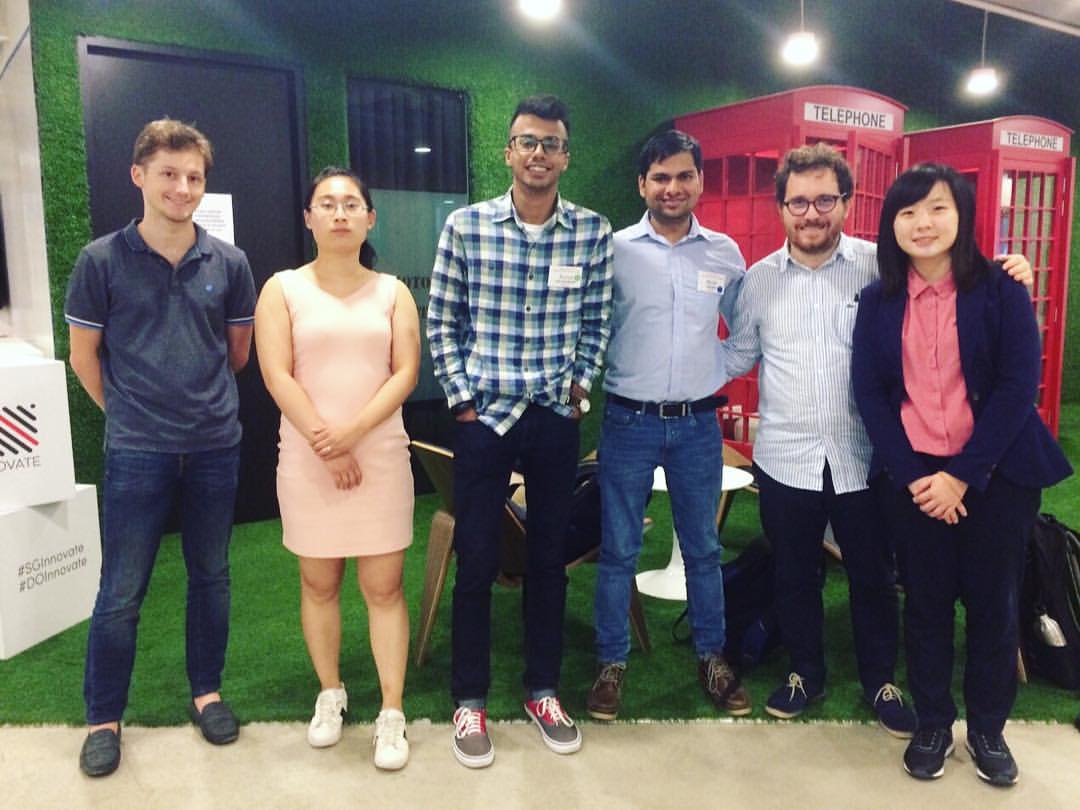Future of Science, Technology and Policy Workshop
Recently I was selected as a mentor for the cybersecurity track of the Future of Science, Technology and Policy Workshop, organized by SMART. I had the privilege to supervision six graduate and post-graduate colleagues with different backgrounds:
- Jukka Isohätälä from NUS (Physics and CS)
- Nikhil Mallareddy from MIT (Environmental Engineering)
- Ioannis Fousekis from ETH (EECS and Economics)
- Michael Wicki from ETH (Political sciences and Economics)
- Fabian Willibaldf rom ETH (Environmental Engineering)
- Jay Prakash from SUTD (EECS)
I’m presenting the summary of our activities of day 2 related to cybersecurity organized at my institution SUTD:
We started knowing about Singapore’s Cyber-Security Agency (CSA). In particular, we were introduced to Singapore cybersecurity strategies and long-term plans.Then we heard the personal story of a cybersecurity startup founder and we discovered common and effective threats in the cybersecurity landscape. Finally, we heard two presentations from two SUTD cybersecurity professors about novel cybersecurity problems and solutions, such as cyber-physical systems, IoT and adversarial machine learning. We understood the importance of education and awareness when talking about cybersecurity.
After lunch we visited SUTD’s world-class cybersecurity facilites. We started from iTrust, SUTD’s cybersecurity research centre. iTrust covers a broad range of topics spanning from theoretical to applied cybersecurity. The range of research area covered spans from traditional computer security to domain-specific areas such as: industrial control systems, Internet of Things, and autonomous vehicles.
iTrust in collaboration with the Singapore government and private industries has developed four state-of-the-art testbeds. Those testbed allow researchers to apply and evaluate their ideas in realistic and safe environment. We now briefly comment of each of the testbed. The Secure Water Treatment testbed is the oldest and it includes advanced sub-processes such as Ultrafiltration and Reverse Osmosis. The water treated by SWaT is one of the sources of the second oldest testbed: the Water Distribution (WaDi) testbed. WaDi is a miniaturized reproduction of a water distribution facility with six consumers tanks with independent demands patters. WaDi can be used to simulated water leakages, water-hammer attacks and water contamination. Both SWaT and WaDi can be powered by EPIC the smart grid testbed. EPIC is the newest and less-know testbed at SUTD and several researchers are actively working to evaluate it. Finally, we visited the Internet-of-Things testbed that includes an anechoic chamber to perform radio tests and several Commercial-Off-The-Shelf devices (such as IP camera, smart thermostats and smart lamps) to recreate a smart home environment.
Overall it was a very rich experience. We understand that coming up with a cybersecurity policy is a hard problem for several independent reasons such as cross-disciplinary knowledge, funding, awareness, and education.
Here I’m sharing a picture with all the participants from SUTD:

More pictures here